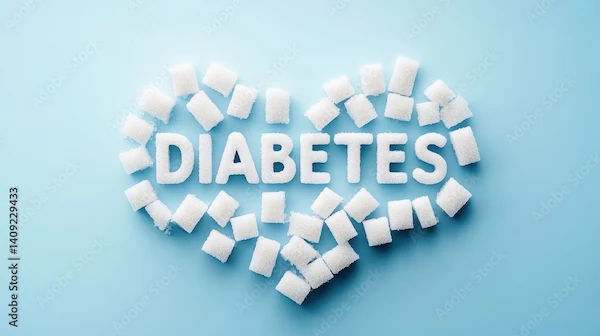How to Reduce Insulin Resistance: Causes, Symptoms & More
Learn how to reduce insulin resistance with diet, exercise, weight management, and stress control. Improve insulin sensitivity to lower the risk of type 2 diabetes and enhance overall metabolic health

Written by
Last updated on 13th Jan, 2026
Around 40% of the adults in the US between the ages of 18 and 44 are insulin-resistant, based on HOMA-IR measurements. Insulin resistance occurs when the cells in the body do not respond effectively to insulin, which is a hormone that regulates blood sugar levels. It can lead to elevated blood glucose levels, thereby increasing the risk of type 2 diabetes along with other metabolic conditions.
Keep reading to learn about the causes of insulin resistance, symptoms, diet and nutrition strategies, medication and more.
Causes of Insulin Resistance
The major causes of insulin resistance are:
Family History
A family history of insulin resistance or type 2 diabetes may predispose the individual to develop this condition. Genetic predisposition affects the way one’s body metabolises glucose and reacts to insulin.
Genetics
Usually, genetics play a role, but whether a person becomes insulin-resistant is mostly determined by lifestyle. Some ethnic populations may have a higher genetic predisposition to insulin resistance, so it is beneficial to follow healthy habits early on.
Lifestyle and Nutrition
Unhealthy lifestyle choices, including a high-calorie diet, sedentary behaviour, and inadequate sleep, contribute to insulin resistance. Excess consumption of refined carbohydrates and sugary foods can spike blood sugar levels, leading to insulin overproduction and reduced effectiveness over time.
Consuming large portions of processed foods, saturated fats, and excessive alcohol can further damage insulin function. The body’s ability to utilise insulin is also negatively affected by the lack of physical activity.
Symptoms and Diagnosis of Insulin Resistance
Individuals with insulin resistance can experience symptoms like:
Fatigue
Increased hunger
Difficulty losing weight
Dark patches of skin, particularly around the neck and armpits
Such symptoms are often subtle and can go unnoticed until more severe conditions, such as prediabetes or type 2 diabetes, develop.
Other signs of insulin resistance include:
Frequent urination
Brain fog
High blood pressure.
Women with insulin resistance can also experience irregular menstrual cycles, indicating underlying hormonal imbalances.
Diagnostic Tests and Criteria for Insulin Resistance
Blood tests are used to assess insulin resistance in the body. In this regard:
The fasting insulin test, glucose tolerance test, and haemoglobin A1c test help determine how well the body processes glucose.
Elevated fasting blood sugar levels and high insulin concentrations can indicate possible insulin resistance.
The Homeostatic Model Assessment of Insulin Resistance (HOMA-IR) is also commonly used to estimate insulin resistance levels.
Timely intervention is possible through early detection using such tests.
Diet and Nutrition Strategies for Controlling Insulin Resistance
Eating a well-balanced diet plays a role in improving insulin sensitivity:
Foods rich in fibre, like vegetables, legumes, and whole grains, help stabilise blood sugar levels.
Healthy fats from avocados, nuts, and olive oil support metabolic function.
Lean proteins, like fish and poultry, support muscle maintenance and glucose regulation.
Fermented foods such as yoghurt and kimchi can help improve gut health, which is also linked to better insulin function.
Eating smaller, more frequent meals can also prevent blood sugar spikes.
Consuming refined carbohydrates, sugary drinks, and processed foods should be minimised as they contribute to blood sugar spikes.
Fried foods and packaged snacks often contain rich levels of trans fats, which can possibly worsen insulin resistance.
high intake of red meat and high-fat dairy products is also associated with increased insulin resistance.
Using natural alternatives for sweeteners like honey or stevia in moderation is advised, as artificial sweeteners may also have adverse effects on insulin function.
Exercise and Physical Activity to Reduce Insulin Resistance
Exercise is important in regulating insulin resistance. Here’s why:
It improves glucose uptake in muscle cells and helps reduce body fat, a key factor in managing insulin resistance.
Exercise also enhances cardiovascular health and can help counteract the effects of prolonged sitting, thereby reducing the risk of complications related to insulin resistance.
Activities such as brisk walking, jogging, cycling, and strength training should be performed for at least 150 minutes per week to achieve optimal benefits. Both aerobic and resistance training exercises help in improving insulin sensitivity. \
High-intensity interval training (HIIT) is also particularly beneficial in enhancing insulin function.
Incorporating flexibility and balance exercises, such as yoga or pilates, can further support overall health and well-being.
Weight Management for Combatting Insulin Resistance
Excess body fat, particularly around the abdomen, is strongly linked to insulin resistance. In this regard:
Maintaining a healthy weight reduces strain on the metabolic processes and improves the insulin function of the body.
A sustainable weight loss of 5-10% of the body weight significantly improves insulin sensitivity. Hence, preventing weight gain by eating mindfully and regularly exercising is key.
A combination of a nutrient-rich diet, regular exercise, and portion control is necessary for sustainable weight loss. \
Reducing calorie intake while ensuring adequate nutrient consumption can be done by tracking food intake, which helps with long-term weight management.
Drinking plenty of water and getting enough sleep is also equally important in regulating metabolism and appetite.
Medications and Supplements for Controlling Insulin Resistance
The common medicines and supplements prescribed for reducing insulin resistance are:
Medicines which help decrease glucose production in the liver and increase glucose uptake in muscles, like metformin or thiazolidinediones, are prescribed to help lower blood sugar levels and improve insulin function.
However, it should be noted that medications should be used along with lifestyle modifications rather than as a standalone treatment.
Certain supplements, including magnesium, omega-3 fatty acids, and berberine, may support insulin sensitivity.
Deficiency of Vitamin D can also lead to insulin resistance. Adequate sun exposure or supplementation can help counter this issue. Insulin function can also be improved with the help of cinnamon extract or alpha-lipoic acid.
Lifestyle Changes and Stress Management for Reducing Insulin Resistance
Here’s why managing stress and adopting lifestyle changes are key to controlling insulin resistance:
Managing stress is important to keep blood sugar levels balanced in the human body, as chronic stress can elevate cortisol levels and contribute to insulin resistance.
Stress can also lead to unhealthy eating habits and weight gain.\
It can be managed effectively by practising mindfulness, engaging in relaxation exercises, and ensuring adequate sleep.
Yoga, meditation, and deep breathing exercises can help lower cortisol levels and improve metabolic function.
Spending time in nature, following hobbies and maintaining social connections can also aid with stress management.
Monitoring Progress and Setting Goals for Reducing Insulin Resistance
Following are some tips to follow for monitoring and managing insulin resistance:
Insulin resistance can be assessed by tracking blood sugar levels and body weight.
Maintaining a journal of meals, physical activity, and symptoms can help identify patterns and areas for improvement.
It is important to set small and attainable goals like incorporating whole foods in the diet or increasing weekly physical activity to sustain long-term success.
Accountability and motivation can also be improved with the help of friends, family or a health coach.
Conclusion
Insulin resistance is a complex health issue and requires multiple aids like diet modifications, exercising regularly, and managing weight and stress. Tracking progress and making adjustments as required can help enhance the effectiveness of such strategies.
The risk of developing type 2 diabetes, heart disease, and other metabolic disorders can be lowered by improving insulin sensitivity. Hence, incorporating healthy habits can support overall well-being and improve quality of life.
Consult Top General Diabetologist
Consult Top General Diabetologist

Dr. Arif Ahmed
General Physician/ Internal Medicine Specialist
9 Years • MBBS, MD (Genl. Med.)
Kolkata
MCR SUPER SPECIALITY POLY CLINIC & PATHOLOGY, Kolkata

Dr. Zulkarnain
General Physician
2 Years • MBBS, PGDM, FFM
Bengaluru
PRESTIGE SHANTHINIKETAN - SOCIETY CLINIC, Bengaluru

Dr. Utsa Basu
Diabetologist
14 Years • MBBS , MD
Barasat
Diab-Eat-Ease, Barasat
(75+ Patients)

Dr. Swaroopa Rani
General Physician/ Internal Medicine Specialist
9 Years • MBBS, MD (Internal Medicine)
Bengaluru
Apollo Medical Center, Marathahalli, Bengaluru
Dr. Sasikamalam
General Practitioner
1 Years • MBBS
COIMBATORE
Apollo Sugar Clinic Coimbatore, COIMBATORE


